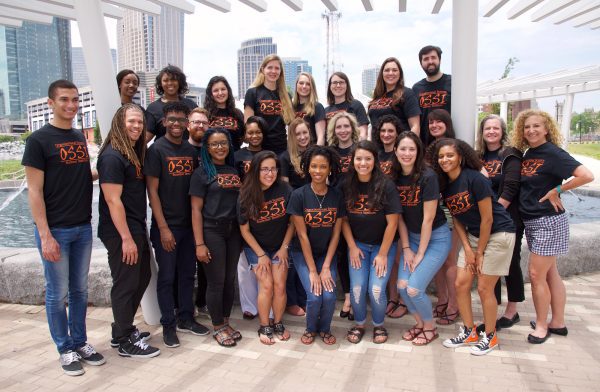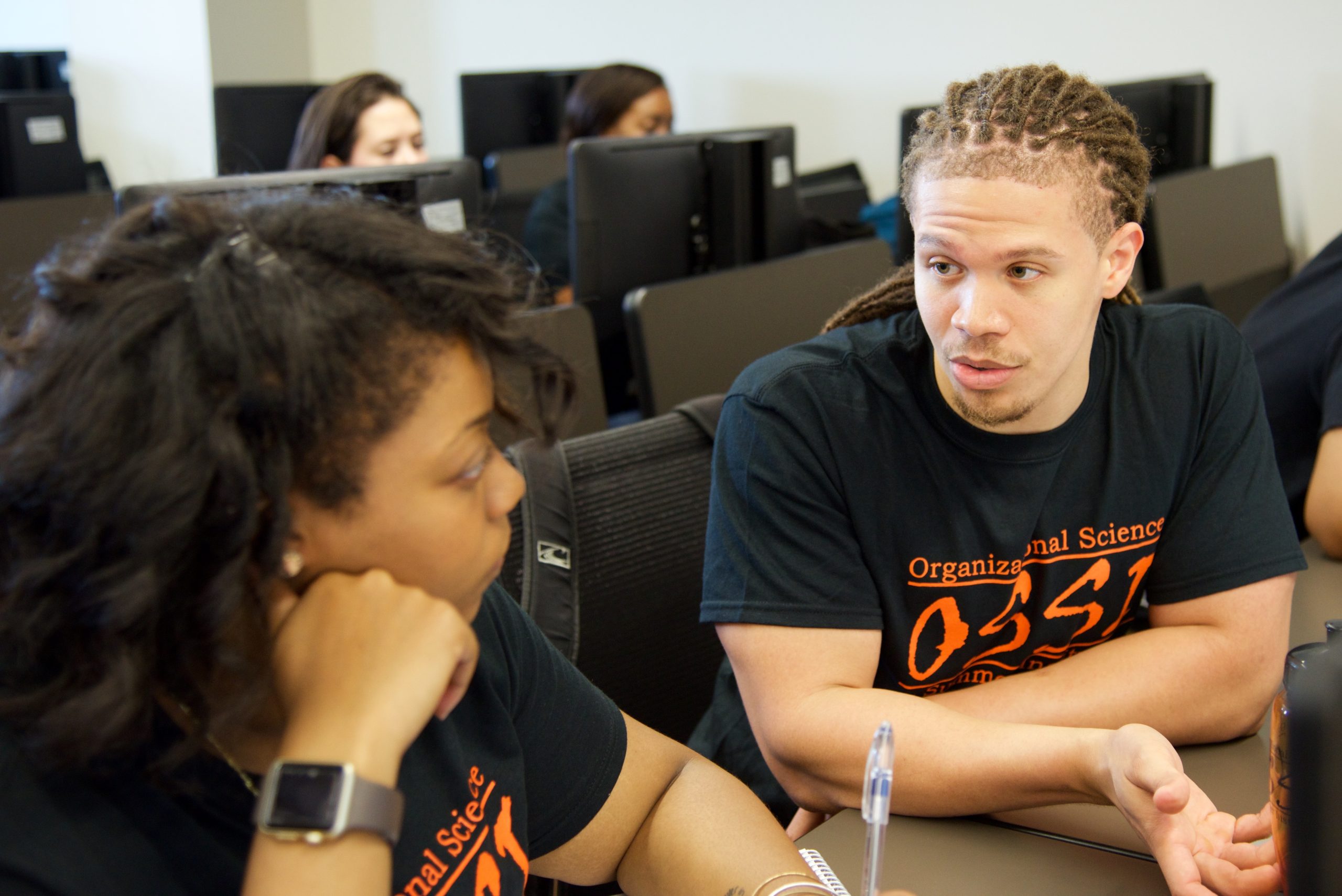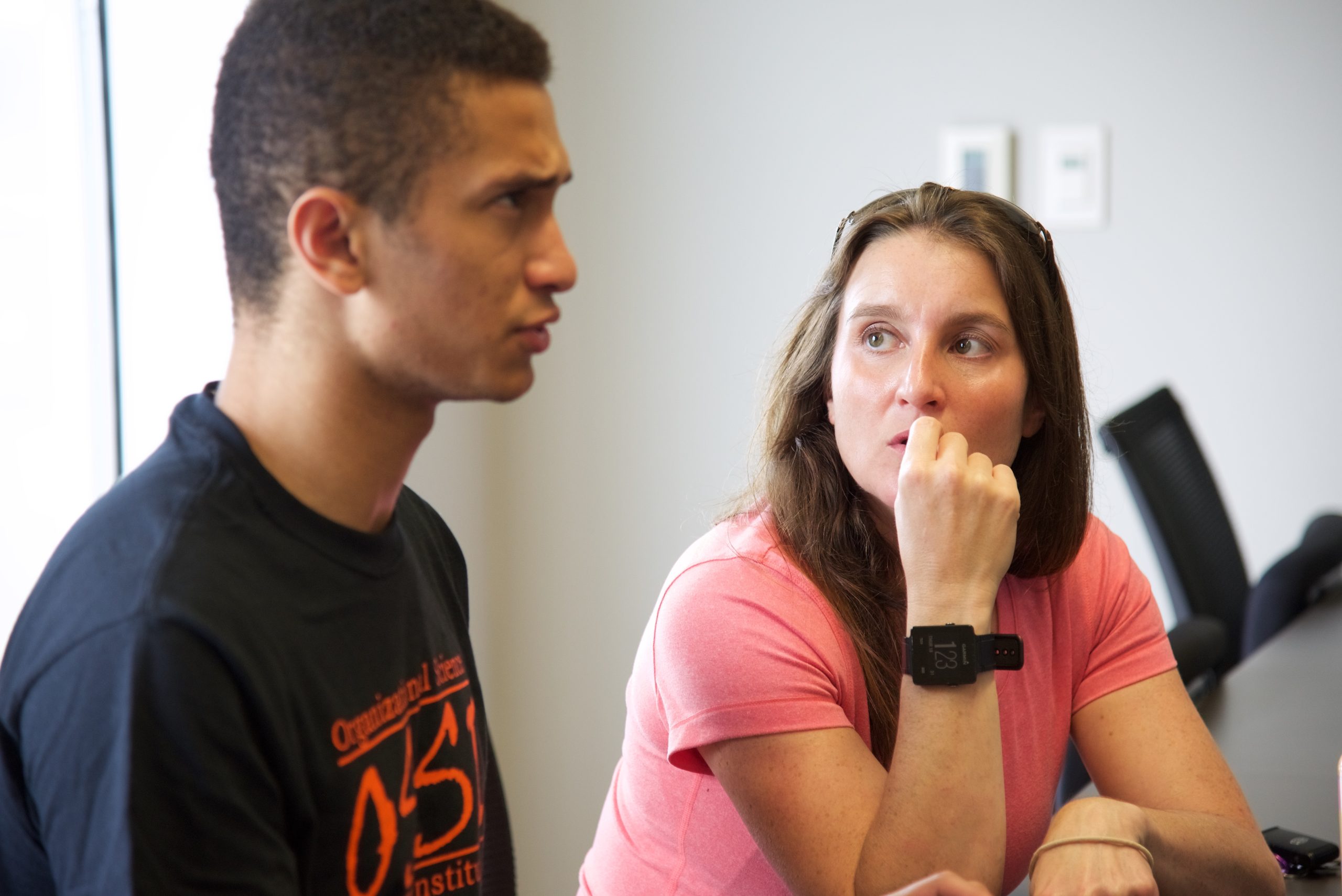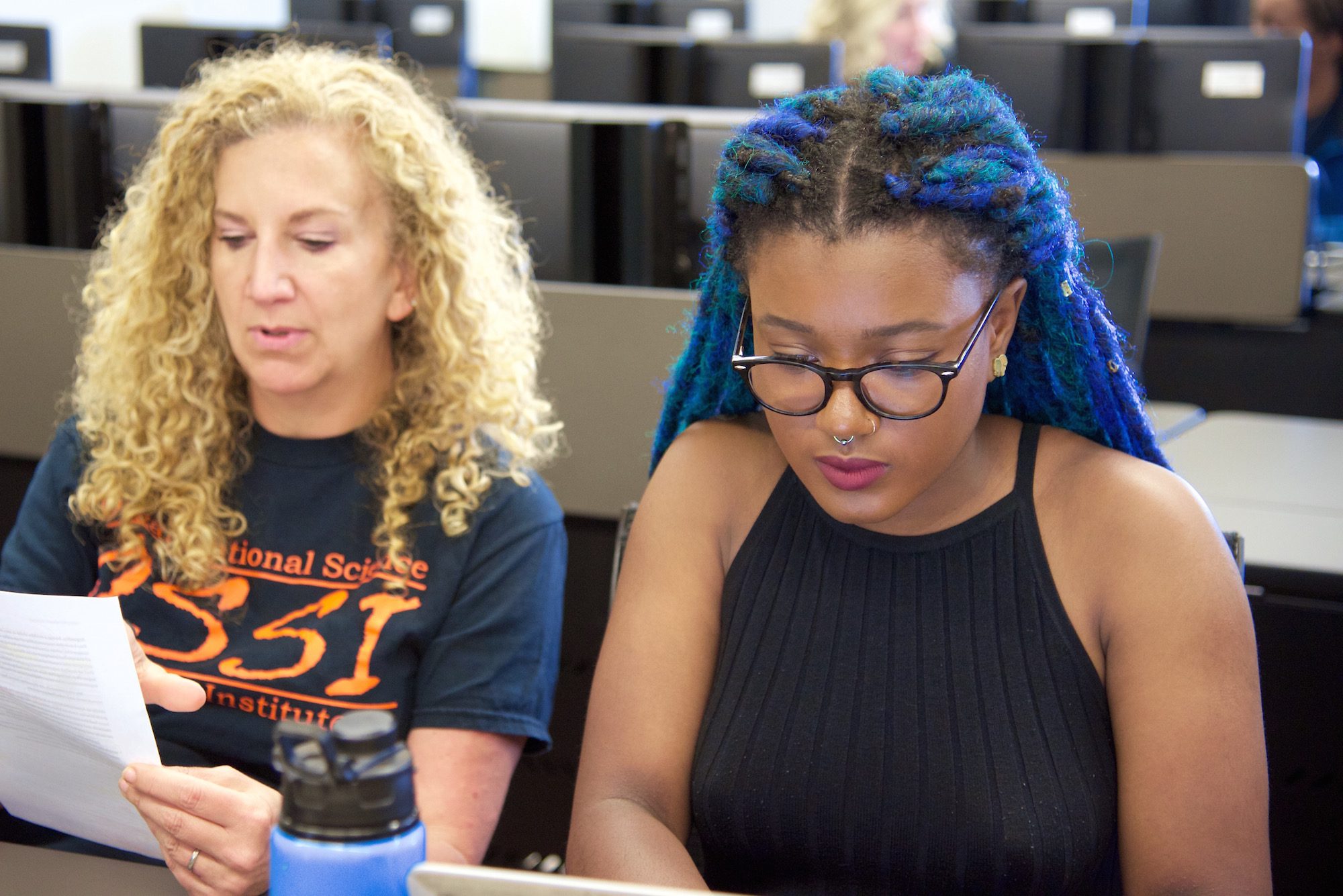Organizational Science Summer Institute Brings Graduate Studies Into Reach

Undergraduate students from around the nation who may have thought graduate school was out of their reach found out in a one-week summer institute at UNC Charlotte that it is within their grasp.
“We have incredible data showing that many of the fellows in our institute seek graduate education. It’s a huge percentage and is so gratifying,” says Steven Rogelberg, co-founder of UNC Charlotte’s Organizational Science Summer Institute.
The institute seeks to diversify the field of organizational science through professional development, specifically targeting historically underrepresented undergraduate students. This summer’s 10 students are among the close to 100 scholars who have completed the inclusion-based, research-driven initiative since it began in 2009. Each year, roughly 50 scholars apply.
“We want to make a genuine difference by helping to build a pipeline of excellent, traditionally underrepresented students into the organizational sciences,” Rogelberg says. “We want to be part of a broader solution around providing exposure and opportunity to a greater range of people. Our hope is that efforts like these enable the organizational sciences to reflect the diversity of our society.”
 The program has seen measurable success, says OSSI Faculty Coordinator Enrica Ruggs.
The program has seen measurable success, says OSSI Faculty Coordinator Enrica Ruggs.
“Last year we conducted a survey of past fellows and found that of those who applied to graduate programs, either master’s or doctoral, all were accepted to a program,” Ruggs says. “Our alumni have told us that they believe OSSI helped make them more competitive graduate school applicants and helped prepare them for graduate school.”
During their week at UNC Charlotte, the fellows work with UNC Charlotte student mentors who share their real-world experiences as graduate students. The undergraduates also work with faculty coaches and participate in intensive GRE training, writing exercises, research work, presentation practice and more.
“The fellows have several opportunities to get the inside scoop during OSSI that I do not believe can be learned in a classroom,” says graduate fellow mentor Sabrina Speights.
“Learning the nuance and implicit aspects for gaining access to higher education is just as real of a barrier as standardized test scores and research experience,” Speights says. “The hands-on experience and the multiple perspectives that the fellows are able to glean during OSSI are truly unique and invaluable.”
 Students learn research practices and work on research projects they will continue with faculty members at their home institutions.
Students learn research practices and work on research projects they will continue with faculty members at their home institutions.
“Not all of the students, by the time they come here, have conducted research studies,” says Anita Blanchard, an associate professor of psychology and organizational science who coaches the students. “They find out it’s very interesting and it’s doable. They can solve problems and ask questions and then find the answers in a way they hadn’t known they could do before.”
The OSSI program, which is a component of the interdisciplinary Organizational Science program, also benefits the UNC Charlotte graduate student mentors, who strengthen their leadership, research and teaching skills as they instruct and advise the undergraduates.
“The program avails graduate students the opportunity to advise, instruct, and mentor for possibly the first time in their academic career,” Blanchard says. “Our graduate students rise to the mentoring challenge, and they do a great job at it.”
 Organizers hope the lessons learned will extend well beyond graduate school for the participants, Rogelberg says.
Organizers hope the lessons learned will extend well beyond graduate school for the participants, Rogelberg says.
“Implicit and explicit bias pervades our society,” he says. “It creates discrimination and hurdles that majority group members don’t experience. We do our best to prepare fellows for graduate school, but research still demonstrates that our broader society, on average, favors majority group members when selecting candidates for a job, making promotion decisions and with other choices. Let’s hope that over time these biases continue to decrease and one day don’t exist.”
Until that day, the UNC Charlotte OSSI will continue to offer underrepresented undergraduates additional tools to help them succeed.
Words: Hannah Rayburn, CLAS Intern | Images: Lynn Roberson, CLAS Communications Director